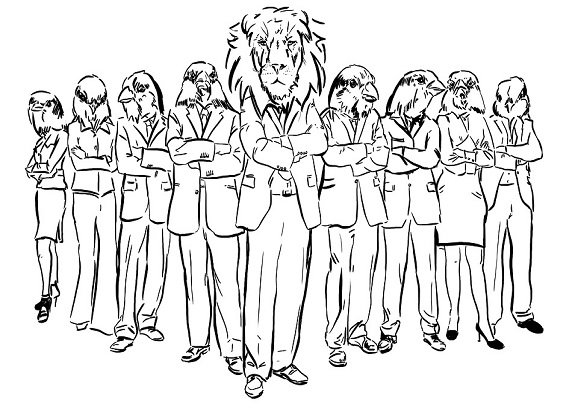Imperceptible Influence
I’m not in this world to live up to your expectations, and you’re not in this world to live up to mine. — Bruce Lee
Take a look around you. Is there anyone nearby, or are you alone?

BATTERY BONANZA
In a now famous study, researchers had college students go to the campus store and shop for batteries.
I know, not the most exciting start to a “famous” study, but stick with me.
Participants in this study were given $5 and told to purchase one of multiple brands of batteries. Unbeknownst to the participant, though, the researchers had positioned either zero, one, or three confederates (i.e., researchers trained to look like normal shoppers) beside the battery display.

First, when no one was standing beside the battery display, the participants were most likely to buy the cheapest battery (as they got to keep the remaining money and the batteries). However, when there were just three random people there, the participants overwhelmingly purchased the most expensive batteries! (Presumably out of the desire not to look cheap.)
Moreover, whereas some participants used the nearby “battery testing station” when no one was around, not a single person used the station when there were three strangers nearby. (Presumably out of the fear of looking uncool.)
So, even when we’re buying something as stupid as batteries, the mere presence of strangers you will never see again can have a significant influence on our behaviors…
DINNER DIVERSITY

MUST NEVER ORDER SAME THING!!
That is, if you go out to eat in America, it’s customary that you try to order something different than the other people you’re dining with. But how does this “social norm” influence our behavior and satisfaction with our choice?
In what’s now known as the famous “Beer Study” (I know, nothing but famous studies for you today), researchers posed as waiters at a local microbrewery and served beer to tables of patrons in one of two ways.

Afterward, the researchers asked the patrons how satisfied they were with their beer and if they regretted their selection.
The first thing worth noting is that in the “classic” ordering style, the beer selections were much more varied than when patrons ordered in secret (i.e., more people got different beers). But what’s even more interesting is that those in the “secret” condition were actually much more satisfied with their beer than those in the “classic” condition. And moreover, whereas only 12% of patrons in the secret condition regretted their choice, about 40% of people in the classic condition regretted theirs!
THE POWER OF PRESENCE
So, the next time you have to make a choice around others, remember, you’re likely to be influenced by them even if you don’t want to be. Therefore, as a concrete takeaway from today’s post: Always try to be the person who orders first ????
Presently,
jdt
Everyday Psychology: Can you think of instances from your own life where the mere presence of others—strangers in particular—influenced you to make a decision you otherwise would not have? Again, this is different than peer pressure, where the other people are actively trying to influence your behavior. In the context I’m describing, why is it that we let strangers have this “invisible influence” on us? What can we do to better counteract it and make the decision that WE want to make?
Argo, J. J., Dahl, D. W., & Manchanda, R. V. (2005). The influence of a mere social presence in a retail context. Journal of Consumer Research, 32(2), 207-212.
Ariely, D., & Levav, J. (2000). Sequential choice in group settings: Taking the road less traveled and less enjoyed. Journal of Consumer Research, 27(3), 279-290.







